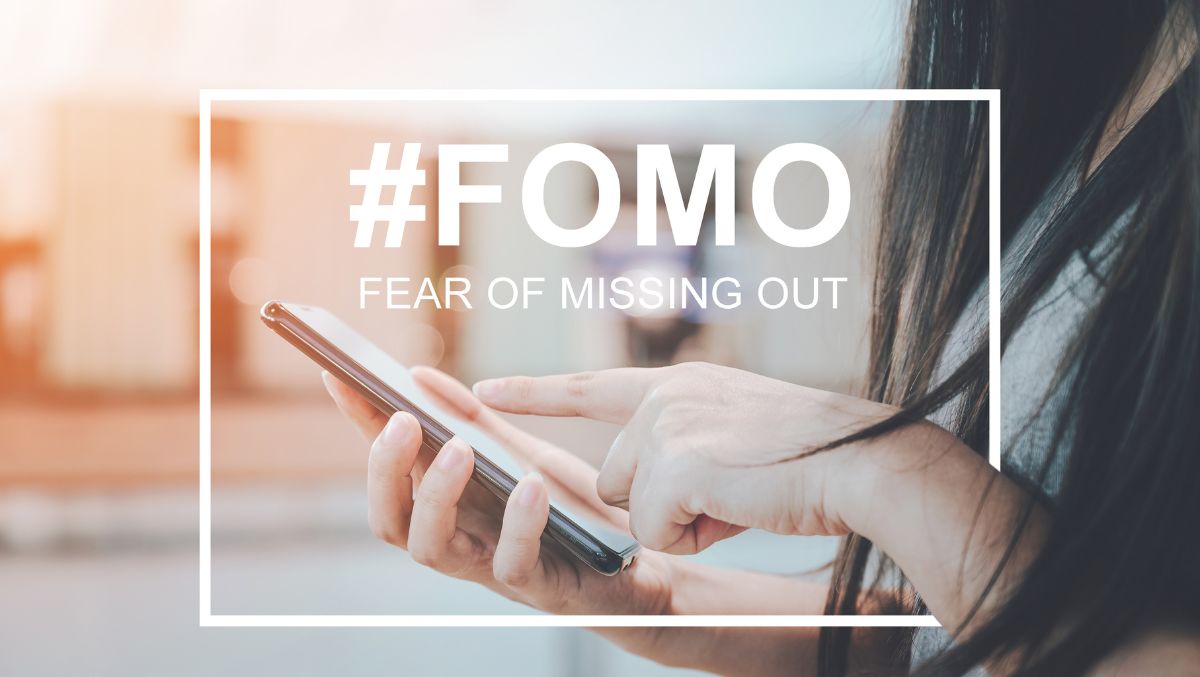The High Cost of FOMO: How Fear of Missing Out Affects Your Finances
by Andrea Norris-McKnight

You’ve probably seen or heard the term “FOMO” and know it stands for “Fear of Missing Out.” But you might not understand the high cost of FOMO and the harm it may be doing to your finances.
FOMO has become a pervasive issue in our digital world, influencing social interactions and personal financial decisions. It is an emotional response fueled by social media and the constant bombardment of images and stories showcasing the seemingly perfect lives of others. And it can lead to a significant overspending for those influenced by it.
Do you think FOMO contributes to your overspending? Here is a look at its impact on financial behavior and some strategies for protecting your budget.
Understanding FOMO
FOMO is the uneasy and sometimes all-consuming feeling you’re missing out on experiences, events, or opportunities others enjoy. It’s the fear that you are somehow being left behind or out of touch by not participating in certain activities or treating yourself with pricey things. This feeling is often exacerbated by social media platforms where the highlights of people’s lives are on full display, often leading to unrealistic comparisons and the belief that everyone else is living a better, more exciting life.
Pre-internet, we had a similar phenomenon known as “Keeping Up With the Joneses,” referring to people spending on expensive cars, homes and even lawnmowers to appear they were doing just as well financially as friends and neighbors. Today, thanks to social media, you may be compelled to keep up with friends and strangers.
Sign Up for Savings
Subscribe to get money-saving content by email that can help you stretch your dollars further.
Twice each week, you'll receive articles and tips that can help you free up and keep more of your hard-earned money, even on the tightest of budgets.
We respect your privacy. Unsubscribe at any time.
The High Cost of FOMO: 4 Negative Financial Behaviors
FOMO can lead to several negative financial behaviors. See if you relate to any of the following:
1. Impulsive Spending
The desire to keep up with peers or trends leads you to spend impulsively on expensive gadgets and clothing, luxury vacations or other things and experiences way out of your budget. Often made without proper planning, these expenditures sometimes deplete your savings and land you in credit card debt.
2. Neglecting Financial Goals
You sometimes divert funds from critical financial goals, such as saving for retirement or paying off debt, in favor of short-term pleasures. You can’t seem to get ahead financially or sometimes struggle to cover your monthly bills.
3. Lifestyle Inflation
You’re stuck in a continuous cycle of lifestyle inflation, where your increased spending doesn’t satisfy you or make you happy because you’re always too focused on what you don’t have or haven’t done. You work harder to earn more money to spend more to achieve satisfaction or happiness. But it just makes you feel trapped in a cycle of working more to afford a lifestyle that doesn’t necessarily bring you more joy.
4. Emotional Spending
The emotional toll of feeling left out or behind leads to retail therapy, seeking comfort in shopping or dining out and using spending to cope with negative feelings. When this emotional spending strains your budget, you spend even more to relieve the financial stress.
5 Strategies to Combat FOMO’s Financial Impact
The following tips can help you control spending when FOMO is urging you to spend:
1. Awareness and Mindfulness
The first step is learning to recognize when FOMO is influencing your financial decisions. Mindfulness practices can help you become more aware of your emotions and the triggers that lead to FOMO-induced spending.
Suppose you want to take a vacation, and the only way you can go is to put in on a credit card. Spend time considering why you want to go. Perhaps even keep a journal for analyzing the emotions behind your urge to splurge. Do you want to spend a week in Key West because you just saw the photos of your friend’s trip, or do you imagine how great it will be to post your own vacation photos online? Do you think more vacations will make you happier?
If you answer “yes” to these types of questions, FOMO is influencing your decision.
2. Setting Financial Goals
Having clear, defined financial goals can help you stay focused and resist the temptation to spend impulsively. Whether saving for a down payment on a house, building an emergency fund, or investing for retirement, keeping your financial objectives in sight can motivate you to bypass short-term desires.
Keep your goals in writing and hanging on your bathroom mirror or fridge so they are a continual reminder of what you’re working toward. Perhaps make a vision board of your goals. Document your progress. Whenever FOMO is enticing you to spend, look at your goals and your progress to help avoid an unnecessary purchase.
3. Budgeting for Fun
It’s crucial to balance saving and spending. Allocate a portion of your budget for discretionary spending that allows you to enjoy experiences without derailing your financial goals. This can help satisfy the desire for social participation while keeping your finances in check.
Also, remember that fun doesn’t haven’t be costly. Invite friends over for a game night. Watch for free local concerts to attend. If you can’t keep up with expensive friends, perhaps seek another social circle of friends with budgets more in line with yours.
4. Cultivating Gratitude
Practicing gratitude for what you already have can diminish the impact of FOMO. Regularly reflect on the positive aspects of your life and your experiences.
Once again, a journal can come in handy for this purpose. You may find that a bit of gratitude can go a long way to help squash the urge to constantly seek more.
5. Limiting Social Media Exposure
Since social media is a significant catalyst for FOMO, reduce your time on these platforms to lessen its impact. Be selective about who you follow and take regular breaks from social media to maintain a healthier perspective on your own life and accomplishments.
Don’t Let FOMO Continue To Harm Your Financial Future
While wanting to partake in rewarding experiences is natural, allowing FOMO to dictate spending can lead to financial instability and unhappiness. By understanding the triggers and implementing strategies to manage the influence of FOMO, you can enjoy a more balanced life, both socially and financially.
Reviewed February 2025
Sign Up for Savings
Subscribe to get money-saving content by email that can help you stretch your dollars further.
Twice each week, you'll receive articles and tips that can help you free up and keep more of your hard-earned money, even on the tightest of budgets.
We respect your privacy. Unsubscribe at any time.
About the Author
Andrea Norris-McKnight took over as the editor of The Dollar Stretcher and After 50 Finances after working under the site founder and previous editor for almost 15 years. She has also written for Money.com, GOBankingRates.com, HavenLife.com and The Sacramento Bee.
Popular Articles

On After50Finances.com
- 9 Things You Need to Do Before You Retire
- You Didn’t Save Enough for Retirement and You’re 55+
- When Empty Nesters Reorganize and Declutter Their Home
- Reinventing Your Career in Your 50s or 60s
- What Mature Homeowners Should Know about Reverse Mortgages
- 2 Reasons to Collect Social Security Benefits As Soon As Possible

